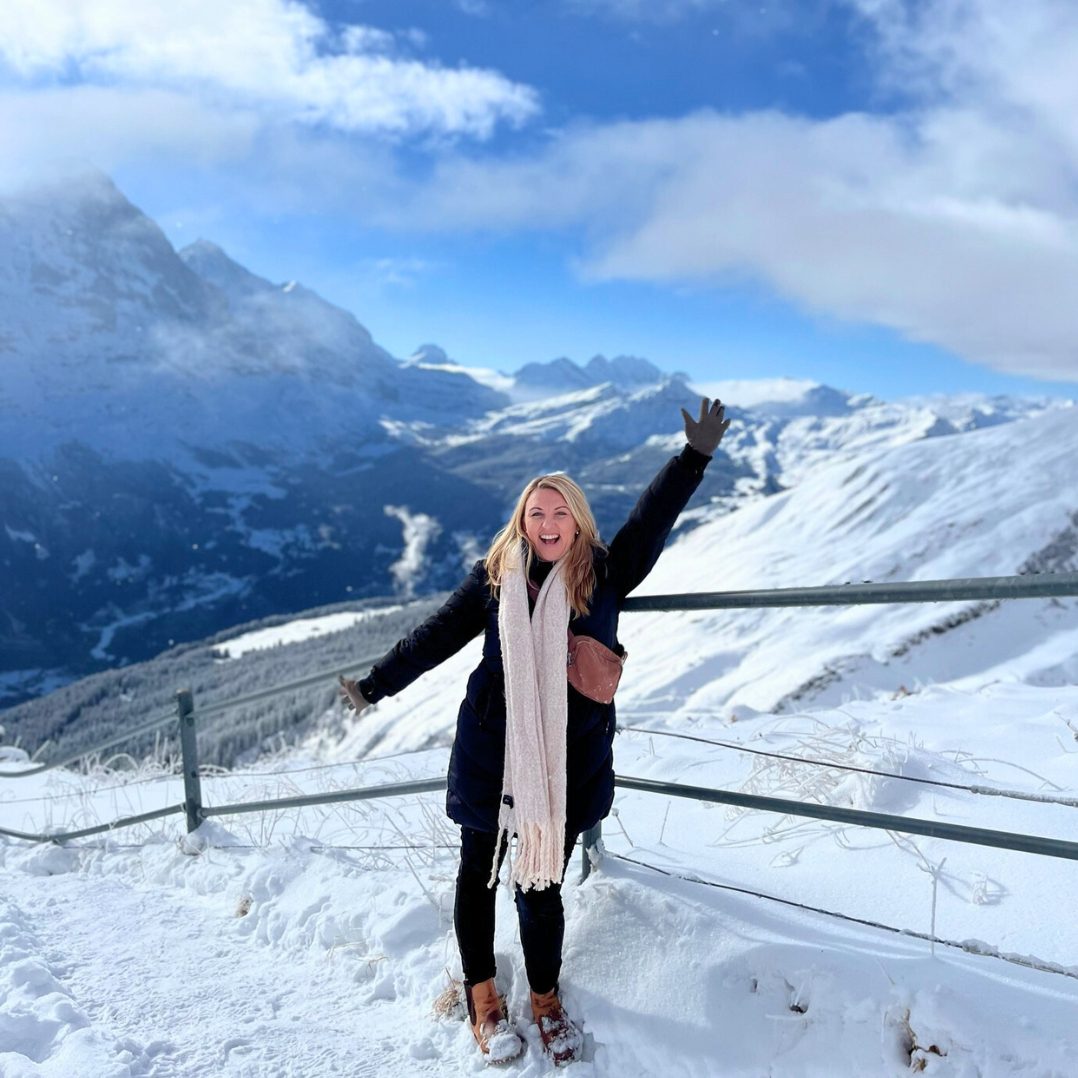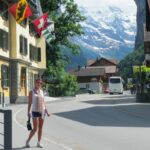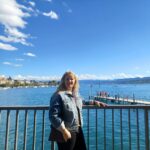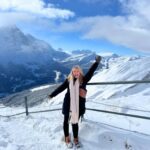Switzerland Frequently Ask Questions
What is the currency in Switzerland?
The Swiss Franc (CHF) is the official currency.
Do I need a visa to visit Switzerland?
Visa requirements depend on your nationality. Most visitors from Western countries do not need a visa for stays up to 90 days. Check the Swiss embassy or consulate in your country for specific information.
Is Switzerland expensive to visit?
Switzerland is generally considered an expensive country, but with careful planning, you can enjoy a wonderful trip without breaking the bank. Consider accommodations outside major cities, pack your own food, and take advantage of free activities like hiking.
How to Get Around Switzerland (transportation options)?
Switzerland offers excellent transportation options:
- Train: Efficient, scenic, and punctual. Swiss Pass offers unlimited travel.
- Bus: Covers smaller towns and villages.
- Car: For flexibility but consider traffic and parking costs.
- Boat: Enjoy scenic cruises on lakes.
What Languages Are Spoken in Switzerland?
Switzerland has four official languages: German, French, Italian, and Romansh. English is widely spoken in tourist areas.
Is Switzerland safe for travelers?
Switzerland is one of the safest countries in the world, but it’s always wise to take precautions:
- Keep your belongings secure, especially in crowded areas.
- Be aware of your surroundings, especially when traveling alone.
- Follow local customs and laws.
- Purchase travel insurance.
What food should I try in Switzerland?
Enjoy classic fondue (melted cheese with bread), crispy rösti potatoes, rich Swiss chocolate, and tartes flambées in French-speaking regions. Don’t miss iconic cheeses like Gruyère and Emmental.
What is the best time to visit Switzerland?
Summer (June–September): hiking, lakes, festivals
Winter (December–March): skiing, snowboarding, Christmas markets
Shoulder seasons (April–May, October–November): fewer crowds and lower prices
What are the must-visit destinations in Switzerland?
Zurich – culture, shopping, lakefront
Lucerne – medieval architecture, Mount Pilatus
Interlaken – gateway to the Alps
Zermatt – Matterhorn views and skiing
Lauterbrunnen – valley of waterfalls
Bern – Switzerland’s charming capital
Can I ski in Switzerland if I’m a beginner?
Yes! Switzerland has many beginner-friendly resorts like Wengen, Grindelwald, Saas-Fee, and parts of Zermatt. Most resorts offer lessons, equipment rental, and practice areas.
Do I need to book trains or cable cars in advance?
For popular scenic trains (e.g., Glacier Express, Bernina Express), advance reservations are recommended. Regular SBB trains don’t require booking. Mountain cable cars and cogwheel trains (e.g., Jungfraujoch) can also sell out in high season.
Are credit cards accepted everywhere in Switzerland?
Yes, Visa and Mastercard are widely accepted. Amex and Discover less so. Always carry some cash for small businesses, markets, or mountain huts.
How many days do you need in Switzerland?
A 7 to 10-day trip allows you to see highlights like Zurich, Lucerne, Interlaken, Zermatt, and Geneva. Shorter trips can still include key destinations with efficient travel.
Can I visit the Alps year-round?
Yes! The Swiss Alps are accessible all year. Winter is ideal for skiing, while summer is great for hiking, biking, and scenic views. Some high-mountain trains run year-round.
What is the Swiss Travel Pass?
The Swiss Travel Pass offers unlimited travel on public trains, buses, boats, and many cable cars. It also includes free entry to over 500 museums—ideal for tourists.
Is Switzerland walkable?
Yes. Most cities have walkable old towns, and the country has well-marked hiking trails in both urban and alpine areas. Trail quality and signage are excellent.
What is Switzerland like during Christmas?
Switzerland is magical during Christmas, with festive markets, snowy landscapes, and holiday lights. Cities like Zurich, Bern, and Montreux are especially beautiful.
Hear it Directly From Our Satisfied Travelers!
EXCELLENTTrustindex verifies that the original source of the review is Google. Taylor was prompt, helpful, & available, if needed. She listened to our “wants” list & came up with a great trip to Curaçao.Posted onTrustindex verifies that the original source of the review is Google. Resort was better than expected! All accommodations were great. Would definitely use again. Thank you Taylor!Posted onTrustindex verifies that the original source of the review is Google. Cannot recommend The Travel Byrds (specifically Christina) enough! We decided to go to London and Edinburgh last minute and it would not have been possible with her. I will use her for every trip overseas from now on!!Posted onTrustindex verifies that the original source of the review is Google. Kika was great! She thoroughly helped in planning our trip and she made adjustments for us during the trip as needed! Would definitely recommendPosted onTrustindex verifies that the original source of the review is Google. Great experience! Karla was wonderful and we had an amazing time. She chose a vacation spot we would have never even known about without her. Highly recommend!Posted onTrustindex verifies that the original source of the review is Google. We had a fantastic experience working with The Travel Byrds travel agency! From start to finish, everything was handled efficiently and thoughtfully. Krista made sure we had dinner reservations at a variety of restaurants, provided plenty of detailed information about excursions, and ensured every part of our trip was well organized. We experienced zero travel issues during our stay, which made the entire vacation completely stress-free. This ended up being one of our best family vacations yet, and we truly appreciate the care and attention Krista put into every detail.Posted onTrustindex verifies that the original source of the review is Google. Maggie with The Travel Byrds was amazing! She took great care to make sure every step of our international vacation was perfect. She sent several emails explaining the currency and customs of each country. Including tipping protocols. She made sure all of our documents were current and ready to go. I cringed about downloading another app for this trip. No regrets!! We checked the app every morning and every night while out of the country. Our itinerary was clearly outlined and so easy to navigate. We actually looked forward to checking the outline every day. Our international return flight was cancelled. It was Maggie who notified us immediately! (Not the airline company, not the excursion company!). She secured a return flight back to the U.S. before the other companies let us know about the cancellation! Top notch service from start to finish. I am excited and calm about our next out of country trip in August 2026. I know she will be monitoring all aspects of that holiday break. Thank you, Maggie!Posted onTrustindex verifies that the original source of the review is Google. Excellent experience with this company and specifically with Haley. Organized an amazing NYE trip outside of the states quickly, cost effective and fun for the whole family. Will use again!Posted onTrustindex verifies that the original source of the review is Google. Maggie made it so easy planning our Honeymoon! She did all the hard work and we had the most relaxing vacation! She is the best!Verified by TrustindexTrustindex verified badge is the Universal Symbol of Trust. Only the greatest companies can get the verified badge who has a review score above 4.5, based on customer reviews over the past 12 months. Read more
Contact Our Switzerland Specialists to Plan Your Tailor-Made Trip!
Start your Swiss adventure and see why this enchanting place captivates travelers from around the world.
Switzerland Travel Expert — Crafted by Those Who’ve Been There
Speak with a Switzerland specialist to plan your tailor-made escape. We’ve explored the islands ourselves, so every journey is crafted from real experience and designed around you.



Switzerland Travel Expert — Crafted by Those Who’ve Been There
Speak with a Switzerland specialist to plan your tailor-made escape. We’ve explored the islands ourselves, so every journey is crafted from real experience and designed around you.



